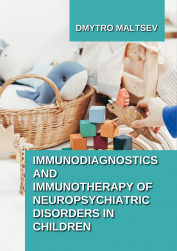Efficacy of combined immunotherapy with Propes and Inflamafertin for selective NK and NKT cell deficiency in children with autism spectrum disorders associated with genetic deficiency of the folate cycle
Keywords:
Immunodiagnostics, immunotherapy, neuropsychiatric disorders, children, diagnostics, therapyAbstract
Recent meta-analyses of randomized controlled clinical trials indicate an association between autism spectrum disorders and genetic deficiency of the folate cycle in children. It has been established that genetic deficiency of the folate cycle affects the immune status of children with autism spectrum disorders, forming a kind of immunodeficiency, the basis of which is a decrease in the number and functional activity of natural killer (NK) cells and natural killer T lymphocytes (NKT). Immunosuppression caused by genetic deficiency of the folate cycle mediates the development of a number of immune-dependent complications that determine the formation of inflammatory encephalopathy in children with autism spectrum disorders, in particular, reactivated opportunistic infections, autoimmune reactions against neurons and myelin and systemic inflammation with the phenomenon of hypercytokinemia. Compensation of immunodeficiency induced by genetic deficiency of folate cycle seems to be an attractive prospect for preventing or at least reducing the manifestations of related immune-dependent complications that influence the severity of CNS lesions in children with autistic disorders. However, such therapeutic approaches remain undeveloped and therefore inaccessible to patients. Results of previous small clinical studies indicate the potential benefit of combined immunotherapy with Propes and Inflamafertin to compensate for the deficiency of NK and NKT cells in folate cycle deficiency, but these encouraging data need to be verified in larger controlled clinical trials with greater validity of the obtained results. Propes is a biological agent containing alpha and beta defensins, which has a pronounced immunoactivating and lymphoproliferative effect. At the same time, Inflamafertin, which includes alarmins and adrenomedullin, on the contrary, has an anti-inflammatory effect mediated by interleukin 10, which is important in preventing autoimmune complications during drug-induced immune activation. As the accumulated experience of using another highly active immunomodulatory agent – recombinant interleukin 2 – indicates, therapeutic immune activation can cause an undesirable increase in the risk of developing autoimmune complications, therefore, the combination of the immunoactivating drug Propes with an anti-inflammatory tolerogenic immunotropic agent seems to be the key to achieving a safe immunomodulatory therapeutic effect.

IMMUNODIAGNOSTICS AND IMMUNOTHERAPY OF NEUROPSYCHIATRIC DISORDERS IN CHILDREN
Downloads
Pages
Published
Categories
License

This work is licensed under a Creative Commons Attribution-NonCommercial-NoDerivatives 4.0 International License.

